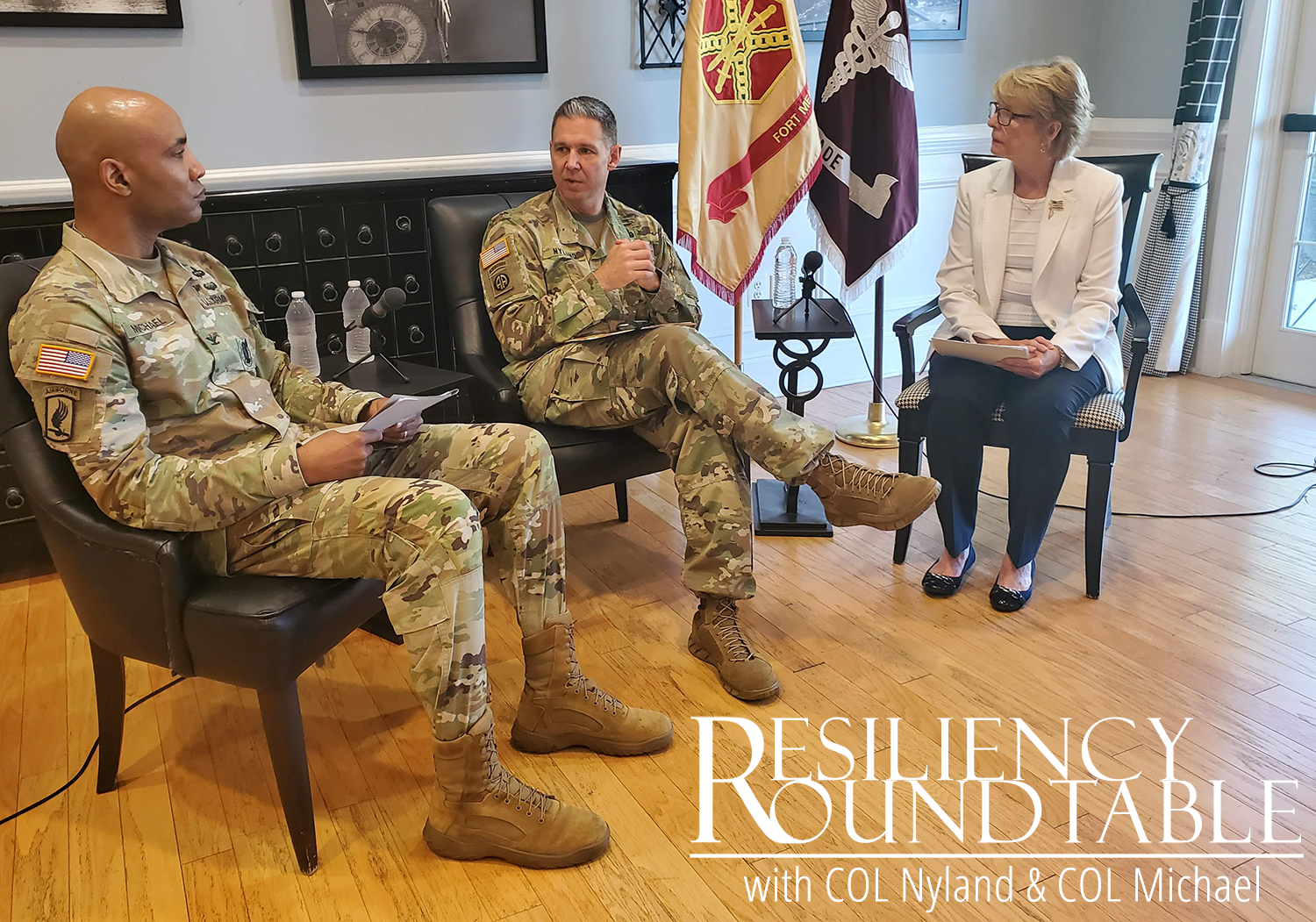
As the second most populous U.S Army base, a joint-forces site housing every branch of the American military and a post that supports daily warfighting activities, Fort George G. Meade faces extraordinary resiliency challenges. That formidable situation, however, has also given rise to initiatives that could set a standard for resiliency services throughout the Department of Defense.
Garrison Commander Col. Christopher Nyland, Fort Meade MEDDAC Commander Col. Tracy Michael and FMA President Doreen Harwood discussed those challenges, initiatives and opportunities at the FMA Resiliency Roundtable.
“One thing I always try to reinforce is the critical nature of the warfighting mission here,” Nyland said. “Service members here on the installation are in contact with the enemy every day. They are doing their wartime missions right from here. It is different from what most people are used to seeing in movies or in the news with Afghanistan and Iraq. But don’t mistake it… They are taking actions to defend us against actors that want to do damage to the United States and they are doing that every day right here in Central Maryland.”

Understandably, the stress of those missions can erode individuals’ resilience. The added complication of living through a pandemic has heightened stressors.
In the past year, Fort Meade has “seen a surprising spike in domestic violence,” sometimes combined with substance abuse issues, Nyland said.
In what he described as a good news-bad news development, Nyland said the post has also seen a significant increase in self-referrals for behavioral health services. “It’s good that they are reaching out for help. It is a little concerning to see the spike in service members needing help,” he added.
To address resiliency needs, Fort Meade MEDDAC initiated an “aligned behavioral health” service that embeds integrated multi-disciplinary teams (often consisting of a psychiatrist or psychologist, a social worker and substance abuse expert) within different units and organizations on post. Those teams become well acquainted with each organization’s mission, members and stressors.
“This aligned behavioral health initiative has really focused on how we can proactively support the installation with behavioral health services,” Michael said. “The simple goal is to get our heads around some of the issues, the contributing factors that are potentially going to lead to something catastrophic later… If we can identify people early who need treatment, we can perhaps mitigate the impacts of some stressors and get them the help they need.”
The teams help tailor behavioral healthcare to the culture of each service and prevent Fort Meade’s healthcare services from being overwhelmed.
“As we have grown this installation, I haven’t seen a corresponding growth in staffing at my facility,” Michael said. “We probably have greater need than we reasonably have staff to support if we simply wait for people to show up at our door. But if we engage proactively, maybe we can head off some [problems]…and, quite frankly, support the community so much better.”
The aligned behavioral health initiative also provides unit commanders with invaluable insights into their own organizations and opportunities to ease stressors and improve individuals’ resiliency, Nyland said. “We are already seeing some really positive outcomes from these efforts… We are so night-and-day from where we were even two years ago, especially with the service members behind the fence, serving NSA and U.S. Cyber Command. They are in such a better position now because of some…very forward thinking, positive policy decisions…by General Nakasone.”
Both commanders said the planned Education and Resiliency Center at Kuhn Hall will significantly augment resiliency services for service members, military families, civilian workers and veterans.
“With Kuhn Hall, what I see is a remarkable opportunity for us to serve in the health service integrating role where we leverage all the resources we have at Fort Meade MEDDAC and Kimbrough Ambulatory Care Center… In partnership with the Fort Meade Alliance, it gives us the ability to tap into the greater resources that are available in the private sector,” Michael said. “That puts us in a position to really create a model that can be emulated across the DoD.”



